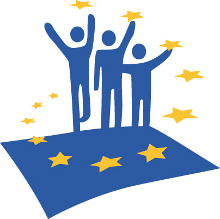The Council of the EU adopted two new Human Rights Guidelines

The two new Human Rights Guidelines approved on June 24th 2013 by the Council of the European Union are respectively devoted to freedom of religion and protection of the rights of LGBTI persons.
Through the "Guidelines on the Promotion and Protection of Freedom of Religion or Belief”, the Council wanted to reaffirm the commitment of the EU to promote, within its external action, the freedom of belief and religion in an timely, consistent and coherent manner. The Guidelines, reaffirming the neutrality of the EU in respect of any religion or belief, provides EU institutions and Member States clear political lines to be used in contacts with third Countries, but also with other international organisations and the civil society in order to prevent and promptly react to violations of the freedom of belief and religion.
Besides, particularly concerned that sexual orientation and gender identity continue to be used to justify serious human rights violations, the Council of EU adopted the “Guidelines to Promote and Protect the enjoyment of all human rights by lesbian, gay, bisexual, transexual and intersex (LGBTI) persons”. The Guidelines, building on some already existing documents adopted in 2010, identify four priorities of action: decriminalisation and elimination of discriminatory laws and politics; promotion of equality and non-discrimination; fight against LGBTI-phobic violence; support and protection for human rights defenders.
The Guidelines, though not legally binding, constitute a framework of reference for all European institutions and Member States for the promotion and protection of human rights in third Countries, in the context of EU’s common foreign and security policy.
Besides the two above-mentioned Guidelines, since 1998 the Council of EU has adopted other eight documents, focused on the following topics: Death Penalty (1998, revised in 2013); Torture and other Cruel, Inhuman or Degrading Treatment (2001, revised in 2012); Human Rights Dialogues with Third Countries (2001, revised in 2008); Children and Armed Conflicts (2003, revised in 2008); Human Rights Defenders (2004, revised in 2008); Promotion and Protection of Rights of the Child (2008); Violence against Women and Girls and Combating all Forms of Discrimination against them (2008); International Humanitarian Law (2005, revised in 2009).

